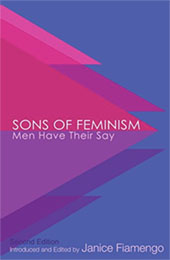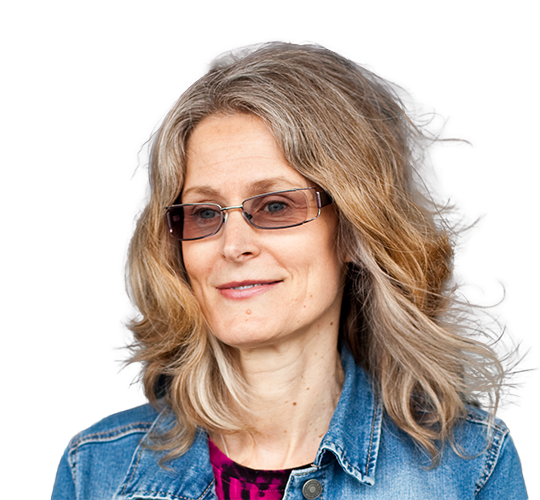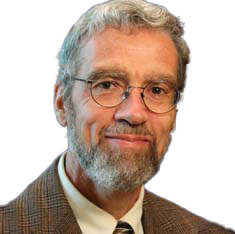Feminist leaders tell us that men are entitled and powerful. Janice Fiamengo actually asked men what it is like to be male in a feminist culture. These 26 stories will surprise you with their accounts of men belittled, disliked, dismissed, blamed, falsely accused, and discriminated against under law–all while being expected to apologize for their “male privilege.”
The following is one story from the collection.
Feminist Warriors in Astronomy
By an Astronomer
I embarked on an academic career in astronomy almost two decades ago. At the time, I was convinced that space sciences, based on factual observations and physical modelling of the vast universe, would always be immune from the obsessive navel-gazing and politics of hurt feelings of Women’s Studies and related departments. Things have changed a great deal since then, and not for the better.
Social justice warriors (SJWs) and feminist activists have penetrated astronomy departments almost to the same degree as in the humanities. The influential Women in Astronomy blog (womeninastronomy.blogspot.com), whose juvenile rants are foisted upon us at major conferences as if they were divine revelation, contains very little astronomy and a lot of political campaigning on leftist issues and victim-group grievances.
There are, in my opinion, two main reasons why even astronomy has succumbed to this disease. The first reason is that astronomers are one of the most politicized subgroups of scientists, and the most susceptible to peer pressure in an overwhelmingly leftist campus environment. The second reason is that there are more men than women in astronomy (http://www.iau.org/administration/membership/individual/distribution/). This indisputable fact is simplistically interpreted as self-evident, mathematical proof that women are discriminated against in their careers. I shall now discuss both arguments in more detail.
Political bias
An average astronomy career develops almost entirely within the narrow boundaries of academia (more than other applied sciences). Most astronomers have a very limited knowledge and understanding of the social and economic structure of the real world. Their worldviews are shaped by the green-left activism of their student days, and are strongly affected by the ideological social-justice movements sweeping western campuses today with an ideological fervor reminiscent of Mao’s Cultural Revolution. Moreover, success or failure in astronomy (again, more than in applied sciences or engineering) depends substantially on the opinion of our peers. Grant and fellowship applications, requests to use the over-subscribed major telescopes, and invitations to speak at international conferences are all determined by small panels of colleagues in the same field, based essentially on how much they trust the applicant’s ability as a scientist.
In the highly competitive field of astronomical research, it usually takes only one particularly unfavorable assessment to sink a good telescope time application. Job applications require recommendation letters from several colleagues who have the task of extolling our personal qualities and explaining how well we would fit in with the group and the institution. It would be nice to believe that such judgement is founded entirely on the applicant’s research results, regardless of personal friendships, social connections, and political opinions, but we know that is not the case; collaborations and connections are often informally created at BBQs, Christmas (sorry, end-of-year) parties and social events. In these circumstances, the safest (perhaps the only possible) strategy for a young astronomer to survive is to “fit in” and follow the dominant political ideology of the group.

Visibly and loudly endorsing the latest fashionable leftist causes (especially feminist and identity politics) with colleagues at lunchtime and around the water cooler can be a matter of academic survival, especially when leftist colleagues outnumber conservatives by a ratio of 20 to 1, as is the case at the Harvard-Smithsonian Center for Astrophysics in Boston (the largest astronomy institution in the US). Being leftist becomes a positional good, a signal of superior morality. There is no escaping the moral gaze of SJWs in astronomy: they seem to spend an egregious amount of taxpayer-funded working hours every day hooked on Twitter, Facebook, and whatever leftist blog is in vogue, scourging the unenlightened and looking for signs of ideological dissent.
Gender imbalance
This is the second main reason why feminist politics has gained significant traction in astronomy. There is an appalling lack of women in STEM fields, we hear from feminist astronomers every day. Many job and grant applications include questions about one’s commitment to and track record on bringing more women into astronomy in a way that makes it clear that any dissenting opinions, doubts and questions are not welcome. And yet, there are many pertinent questions on the issue that I would not be afraid to ask if universities were more open to free speech. A lack of women with respect to what? Is it a problem worth spending time on? If and only if it is a problem, what are its true causes and most practical solutions?
Simply stating that women occupy less than 50% of senior positions in astronomy, or are conferred less than 50% of astronomy PhD degrees, is not evidence either of a problem or of a social injustice. The statistical imbalance in favor of men in maths and physical sciences is mirrored by a symmetrical imbalance in favor of women in education, arts & humanities, health, and biological sciences. This is mathematically inevitable, since women now represent a majority of college graduates in the Western world. Perhaps, instead of spending so much time and money to get women into STEM, we could try pushing women out of education and humanities, with aggressive targets for a minimum number of men or a maximum number of women in those careers. But if society benefits from more women moving to STEM fields because of the new talent they bring, will it also suffer from the loss of a corresponding number of women and talent from education and health? Has anyone tried to do a cost-benefit analysis? Or do SJWs believe that gender balance should be aggressively imposed only in fields where women are currently the minority while not touching the female advantage in the other fields?
Such questions are rarely discussed because the drive to shift women into STEM has mostly ideological rather than practical justifications. Two unrelated but equally obnoxious ideologies are clearly apparent in the minds of STEM SJWs. The first driver is the profound feminist dislike of free choice. Women have the right to choose whatever lifestyle they want, provided they choose the one approved by their leftist minders. A young woman who chooses to study English literature or work in education rather than pursue an astronomy research career is somehow being unconsciously oppressed by the patriarchy, even though she erroneously believes that it was her own choice based on her personal preferences. This is analogous to the feminist distaste for women who choose to leave their careers and raise a family at home.
The second ideological driver is the self-belief of almost all STEM practitioners (astronomers above all) male and female, that their field of knowledge is superior to every other. Because we model “important” things like stars, galaxies, black holes and the universe, most of us truly believe that we are also expert in politics, economics and social matters. Plato’s Republic remains the ideal state structure in the minds of so many of my colleagues, who dream of imposing their superior knowledge and tidy mathematical order onto the unenlightened, hopeless plebs for the common good (which the masses cannot discern on their own). Maths and physics represent the only true knowledge and power: social justice requires that more women be elevated from the muddy fields of humanities, health and education to the Elysian Fields of astronomy, whether they like it or not.
The ideological motivations driving feminist initiatives in our field would not matter much if more women in astronomy really meant more competence and more scientific progress, as claimed by our SJWs. As the Royal Society of Edinburgh stated, in a 2012 report chaired by astronomy professor Jocelyn Bell Burnell, “[t]he country cannot afford this wastage of talent. We need to tap all our talents.” The problem with this argument is that the number of astronomy jobs is limited: society already has all the astronomers it needs, universities already hire more astronomers than they can fund, and the few major telescopes and satellites (essential tools for our research) are routinely oversubscribed by a factor of 5. Doubling the number of astronomy jobs is unrealistic and would be a waste of taxpayers’ money. So, in practice, “tapping all our talents” translates into replacing a large number of male researchers with female researchers in order to achieve parity. This can be justified as a political goal, not as a scientific one: there is no evidence that enforced parity is leading to better research outcomes. In fact, the opposite is happening. In practice, half of the astronomy jobs will be available to a large pool of male applicants; the other half will be reserved for a smaller pool of female applicants. Already today, to obtain a good job, a male astronomer needs to be in the top 10% of male applicants, while a female astronomer only needs to be average. If we were really concerned about the science outcome, instead of tapping all our talents, we should try tapping the very best talents: and that requires a free competition on the job market, with no quotas or targets and no attention to gender balance.
Having dismissed free choice as the main reason for gender imbalance in astronomy, SJWs need to come up with different, politically correct explanations that put the blame squarely on the patriarchy. Two of the most quoted reasons are selection bias and the culture of sexual harassment.
Selection bias
As a male astronomer, I am apparently unable to assess fairly the quality of scientific research done by female colleagues due to my unconscious bias against people who are different from me. Similarly, as a person of non-color, I am told I am biased against people of color. As a straight cisgender male, I am biased against LGBTQWERTY astronomers. And so on. I am also told that any attempt to deny my bias is further proof of how dangerously strong my bias is. (This argument is never applied to political bias: insulting people on the conservative side of politics, saying that they should not be allowed at university, or their funding should be cut, or that they are knuckle-dragging idiots, is perfectly acceptable, as I have experienced many times.)
Most astronomy departments have succumbed to political pressure and have decided they have to do something to “correct” the effects of this alleged bias. They do so in at least three ways. The first one is to create jobs and fellowships specifically reserved for female candidates. Such appointments are usually described in terms of “creating role models,” a politically correct term more palatable than quotas or targets. Apparently, young girls need to see someone who “looks like them” in a position of academic power to become interested in astronomy. And of course, people of color need their role models, genderqueers need theirs, and so on. This is a complete betrayal of a fundamental principle of astronomy: that the universe can be modelled with physical laws independent of the observer; the motion of a planet, the evolution of a galaxy are not open to interpretation according to our age, sex, gender orientation, race, religion, or veteran status.
The second re-education technique is to leave job ads open to male and female applicants, but include clauses that clearly favor a certain type of political activism. For example, astronomy job ads at the University of California routinely include the request for a “statement of contributions to diversity addressing contributions to diversity through research, teaching, and/or service.” The assumption here is that my astronomy discoveries are more valuable if they contribute to diversity and other leftist causes. That apparently innocuous statement contains the same dangerous idea that science should be used to promote a certain ideology, just like physicists in Nazi Germany had to show their commitment to race theories, and Soviet scientists had to explain how their research promoted socialism. Personally, as an old-fashioned libertarian, I still believe that the purpose of astronomy is astronomy itself. None of the great discoveries in the history of astronomy were made by scientists with particular interest in diversity policies. Newton would not have been able to fill out a job application form at the University of California.
The third method used by astronomy institutions to correct for alleged unconscious gender bias is to introduce an even stronger, conscious bias in the opposite direction (the idea of using “good” discrimination to offset “bad” discrimination). Before telescope-time or grant application meetings, we are now commonly subjected to patronizing speeches by diversity figureheads, who remind us how important it is to be fair to female applicants, how we should think twice before rejecting their applications, and how we should be mindful of gender balance and role models in our selection. It is a low-level form of brainwashing. We know that if we select too many male applicants (even if we do it on merit) our choice and motives will be scrutinized, monitored, criticized. Instead, if we select a few more female applicants (even if not all on merit), we will be praised and left in peace. Most astronomers unsurprisingly choose the path of least resistance.
Sexual harassment
If you believe the hype of astro-feminists, our departments are rife with sexual assaults, bullying and violence. The gender imbalance in astronomy is the result of young women being too scared to venture into this ugly, violent, testosterone-dominated environment.
This is a nice, simple theory that gets parroted by every astronomer eager to show their progressive credentials; but is it consistent with the empirical data? Feminists in every faculty claim that (loosely defined) sexual assaults are rife in their own faculty; indeed, campuses as a whole are said to be in the grip of a rape culture. So, why would that (alleged) widespread violence deter women from doing astronomy but not other fields of studies where they are the majority? Moreover, “sexist” comments and workplace flirting are more tolerated in Latin cultures than in the Anglosphere: and yet, the fraction of women in astronomy is higher in Italy, Spain and Argentina than in the more diversity-obsessed Canada, USA, Australia, and Sweden.

I am not saying that sexual harassment never happens in astronomy. There have been a few highly publicized cases of famous male professors flirting or having inappropriate relations with young postdocs or students, and such professors have been duly shamed and harshly punished. I have seen other senior male astronomers having similar relations and getting away with that. I have also seen female students and postdocs who have been happy to flirt with senior male professors and whose careers have benefited from such interactions (but I would be lynched if I said that in public). And I know of senior female professors who entered into relationships with younger male postdocs while nobody complained. In short, inappropriate sexual relations and unwanted flirting do happen sometimes, creating stress in the work environment, but it is not a crisis, it is not worse than in any other human field, and it is not the reason why there are fewer women than men in astronomy. It has been manufactured into a crisis by special interest groups who try to depict women as perennial helpless victims to be protected and compensated, and men as perennial creepy aggressors to be shamed and punished. The Women in Astronomy blog (widely re-tweeted and shared through social media) has become similar to the Red Guards’ Dazebaos during the Cultural Revolution. As a male, I could be anonymously accused of sexual harassment on that blog without a shred of evidence, and my career would be over in a frenzy of online lynching before I had a chance to defend myself. No wonder we all choose to toe the line in public.
Other reasons for gender imbalance
If, as I have argued, sexual harassment is not the reason for a relative scarcity of women in astronomy, what are the true causes? One possibility we need to at least consider is that male brains are better at the higher levels of theoretical physics and maths. I saw first-hand what happened to Harvard University president Lawrence Summers when he suggested such a possibility (I was there at the time), and it was not pretty. In fact, I do not believe that a gap in innate intelligence is the main reason for the gender imbalance. Most types of astronomical research do not require special intelligence or mathematical skills higher than, for example, in biological or health sciences. I suspect the main factor is the hard lifestyle required for a professional career in astronomy. It is often a lonely research pursuit, with a lot of online work in front of a terminal rather than verbal inter-personal communication. It requires working long hours, evenings and weekends. Postdocs have to relocate and move around different countries for a decade (while in their 30s) before they can start competing for tenure-track jobs. More guys than girls enjoy or reluctantly come to accept this lifestyle; it is particularly hard for women who want to have children. The willingness to work longer hours or weekends on short notice is also the main reason behind the so-called “gender pay gap” in other sectors of the economy.
Is it fair?
My colleagues and I were recently pressured to attend a rather patronizing lecture on work-life balance at our University. The speaker was a young female astronomer hired into a women-only fellowship for which she was the only applicant. She argued that in order to narrow the gender balance, astronomy departments should not schedule meetings and seminars after 4pm or before 10am, because such times would be particularly inconvenient for women with children. There should also be restrictions on working long hours and weekends, and in any case people (mostly women) who choose to work shorter hours should not be penalized on the job market compared to those (mostly men) who work longer hours. What I would have liked to reply to her (if I had a suicidal wish) is that it is easy to say so when you have protected jobs with more positions available than applicants. But as a male astronomer, I have to compete with ten other equally desperate people to get a job, and I have to work unsociable hours to survive.
Is it fair that more astronomy jobs and perhaps higher salaries go to people who work longer hours and make more sacrifices in their private lives (which statistically happen to be mostly men)? By analogy, is it fair that all the players selected for our national football team are people who train several hours a day every day rather than people who only have a kick-around on a Sunday morning? Has anyone realized that by selecting only workaholics, our team is missing out on the experience of a diverse group of people and lifestyles and is not representative of the general population? Surely, our team would be twice as good if half of the players were selected based on football skills and the other half on diversity criteria.
Check your privilege
Shaming guys for their “privilege” has become an obsession of SJWs in astronomy, who are aping similar trends in the humanities. At a recent important astronomy conference, we were lectured by a “senior diversity officer” of the host university, who gave the opening plenary speech on what he called the “white heterosexual Anglo-Christian cisgender male privilege in astronomy.” After reminding us how we male astronomers cannot even begin to understand the constant state of fear felt by women and people of color in astronomy departments every day, the diversity officer instructed the audience to pair up in male-female couples. Each couple was told to read, acknowledge and discuss a list of “29 white male privileges.” A few male astronomers randomly picked from the audience were then asked to stand up and publicly confess instances of their privilege. It all looked straight out of a Maoist textbook. And yet, some male astronomers enjoyed being shamed like that. Nothing gives more pleasure to committed leftist academics than to openly proclaim their shame for their own gender, social class, religion, skin color and nationality, because feeling ashamed is a sign of moral superiority, in the same way that whipping themselves and wearing hair shirts make some ascetic monks feel closer to God.
Conclusions
There are now clearly two streams of astronomy careers. The first stream is based on hard work, and leads to merit-based appointments for whoever (male or female) is prepared to accept the asocial research lifestyle. Luck and chance factors play of course a big part in determining the outcome of job applications, but usually not deliberate discrimination. The second stream leads to fast-track tenured positions with much less competition for those who are willing and able to play the grievance card on behalf of their officially recognized victim group. Some astronomers still spend most of their time researching and monitoring the sky; others instead spend most of their time researching and monitoring gender balance within astronomy departments, setting up equity-and-diversity committees, writing 200-page reports on discrimination, conferring awards to themselves for their social-justice work, making up new types of privileges, and running blogs full of political propaganda. Unfortunately, funding is shrinking for the former class of astronomers like me, and is ever-expanding for the latter. We can predict with Newtonian certainty that the outcome of every diversity committee, the recommendation of every inclusion report, is that discrimination is “worse than we thought,” the new women-only jobs or initiatives are “only a first step,” and “Much more has to be done.”
Facing the corruption of a profession I love, an old-fashioned astronomer like me can only do small acts of passive resistance. I am not in a career position where I can express open dissent with the Women-in-Astronomy gang and their socio-political theories. I have seen illustrious scientists (remember comet explorer Matt Taylor or Nobel Prize winner Tim Hunt) being brought down by a frenzy of online bullying without any intervention in their defense from their own department or faculty. Kill one to warn one hundred, as Mao said: it is ugly, but of course it works. There is no easy solution: in the current situation, leftist views totally dominate the campus discourse. Things will only get worse for merit-based rewards and for free speech in general, unless political diversity is pursued in our campuses with the same determination as gender and ethnic diversity.
Janice Fiamengo recently retired from the University of Ottawa, where she was Professor of English. She is the creator of The Fiamengo File and No Joke Janice, 100+ video commentaries on feminism and men’s issues; the full collection of these can be found at Studio Brule. In 2018, she published Sons of Feminism: Men Have Their Say, and is at work on a second volume. She lives in New Westminster, British Columbia, with her husband, poet and songwriter David Solway.








